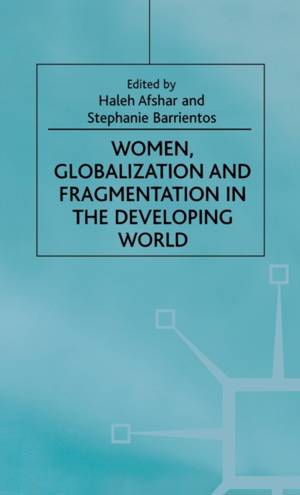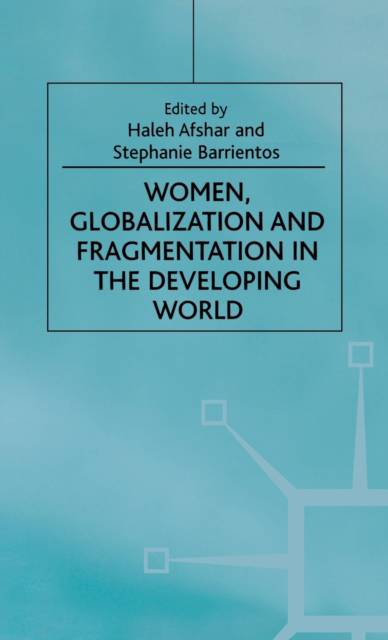
- Afhalen na 1 uur in een winkel met voorraad
- Gratis thuislevering in België vanaf € 30
- Ruim aanbod met 7 miljoen producten
- Afhalen na 1 uur in een winkel met voorraad
- Gratis thuislevering in België vanaf € 30
- Ruim aanbod met 7 miljoen producten
Zoeken
Women, Globalization and Fragmentation in the Developing World
€ 167,95
+ 335 punten
Omschrijving
The process of globalization has had a dramatic impact on the lives of women in developing countries in the past decade. They have been increasingly drawn into insecure flexible employment working for the world market. The feminisation of the labour market has increased the burdens on women, and the inability of men to access full-time well-remunerated employment has exacerbated the process of male out-migration and has left many families headed by women. At the same time the reduction in state services and welfare has increased the burdens placed on women. Nevertheless the consequences of globalization have been different for different women in different places. In some circumstances it has created opportunities for greater empowerment, whilst in others it has stimulated a reaction and increased the subordination of women. This book explores the experiences of women in diverse local contexts within different cultures and faiths, drawing on case studies from Asia, Africa and Latin America. It draws out the contradictory and fragmented impact of globalization at the local level on the lives of women in the developing world.
Specificaties
Betrokkenen
- Uitgeverij:
Inhoud
- Aantal bladzijden:
- 230
- Taal:
- Engels
- Reeks:
Eigenschappen
- Productcode (EAN):
- 9780312216597
- Verschijningsdatum:
- 8/10/1999
- Uitvoering:
- Hardcover
- Formaat:
- Genaaid
- Afmetingen:
- 146 mm x 224 mm
- Gewicht:
- 489 g

Alleen bij Standaard Boekhandel
+ 335 punten op je klantenkaart van Standaard Boekhandel
Beoordelingen
We publiceren alleen reviews die voldoen aan de voorwaarden voor reviews. Bekijk onze voorwaarden voor reviews.










